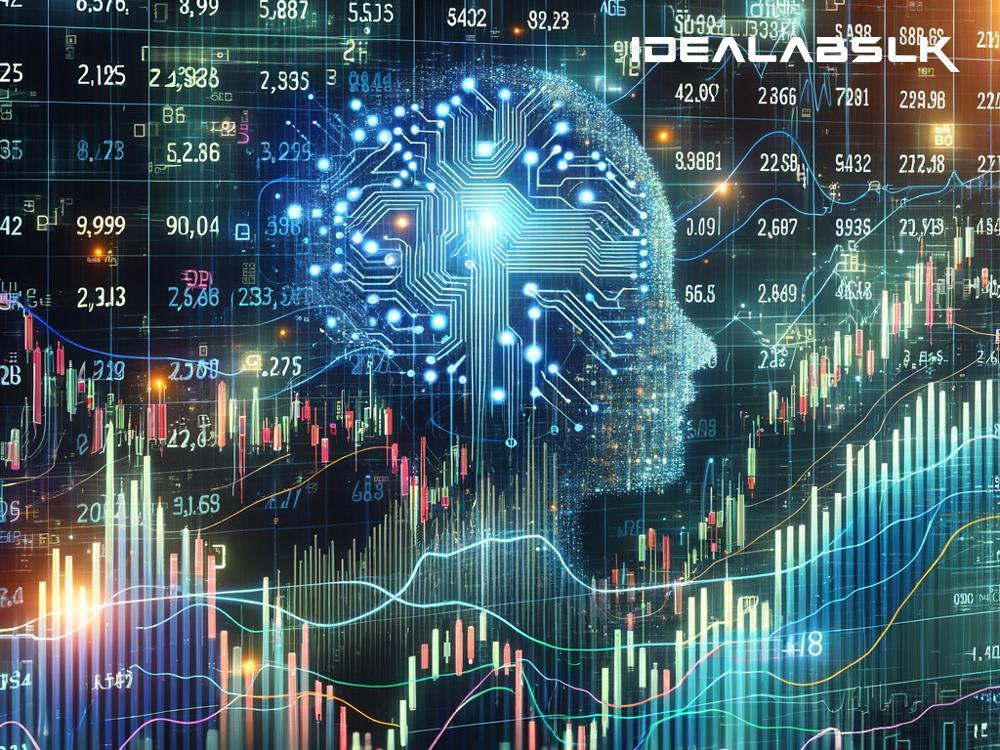AI for Trading: Optimizing Real-Time Stock Market Predictions
In the world of stock trading, where every millisecond can mean the difference between profit and loss, traders are constantly on the lookout for better, faster ways to predict market movements. Enter Artificial Intelligence (AI), a game-changer that is revolutionizing how we approach real-time stock market predictions.
Understanding AI in Trading
At its core, AI involves using computers and algorithms to mimic human intelligence. In trading, AI can process massive amounts of data at incredible speeds, learn from this data, and make predictions or decisions based on its learning. This means AI can analyze trends, recognize patterns, and even predict future market movements much faster and more accurately than a human ever could.
How Does AI Optimize Stock Market Predictions?
-
Data Processing and Analysis: The stock market generates vast volumes of data daily from different sources like news articles, financial reports, social media, and more. AI excels in processing and analyzing this overwhelming amount of information quickly, identifying relevant trends and patterns that might influence stock prices.
-
Learning from History: Through machine learning, a subset of AI, algorithms can study historical stock market data to understand what factors led to rises, falls, or stability in stock prices. By learning from the past, AI can make informed predictions about future market behaviors.
-
Real-Time Decision Making: The stock market is incredibly dynamic, with conditions changing from one moment to the next. AI's ability to analyze data in real time allows traders to make swift decisions, reacting to market movements as they happen rather than after the fact.
-
Emotionless Trading: One of the biggest challenges in trading is managing emotions. Fear and greed can lead to poor decision-making. AI, being devoid of emotion, relies purely on data and logic, leading to more rational and consistent decisions.
-
Risk Management: AI can help traders identify and assess potential risks, suggesting strategies to mitigate them. By analyzing market conditions and historical data, AI algorithms can forecast likely downturns or volatile market periods, helping traders navigate these challenges more effectively.
The Future of AI in Trading
The use of AI in trading is not without its challenges. Issues such as data privacy, security, and the need for massive computational power are significant hurdles. Moreover, as AI technologies advance, there's ongoing debate about the ethical implications of automated trading and its impact on market fairness.
Despite these challenges, the potential benefits of AI for real-time stock market predictions are too significant to ignore. As technology continues to evolve, we can expect AI to become even more sophisticated, offering deeper insights and greater accuracy in predictions. For traders, staying informed about AI developments and understanding how to leverage these technologies can provide a critical edge in the competitive world of stock trading.
How to Get Started with AI in Trading
For those interested in incorporating AI into their trading strategies, here's how to get started:
-
Educate Yourself: Learn as much as you can about AI and machine learning, focusing on how these technologies are applied in trading. Many online courses and resources are available to help you get up to speed.
-
Start Small: Begin by experimenting with AI-based trading tools and software on a small scale. This will allow you to get a feel for how AI works in the trading context without risking significant amounts of money.
-
Choose the Right Tools: Not all AI trading platforms are created equal. Do your research and select tools that are reputable, reliable, and suited to your specific trading needs.
-
Stay Informed: The field of AI is advancing rapidly. Keep yourself informed about the latest developments in AI technologies and trading strategies to remain competitive.
In conclusion, AI is transforming the landscape of stock trading, offering tools and technologies that enhance real-time market predictions. By harnessing the power of AI, traders can process vast amounts of data, make quicker and more informed decisions, and ultimately, achieve better outcomes. As AI technologies continue to evolve, their impact on trading will likely grow, opening up new opportunities and challenges for traders around the globe.

